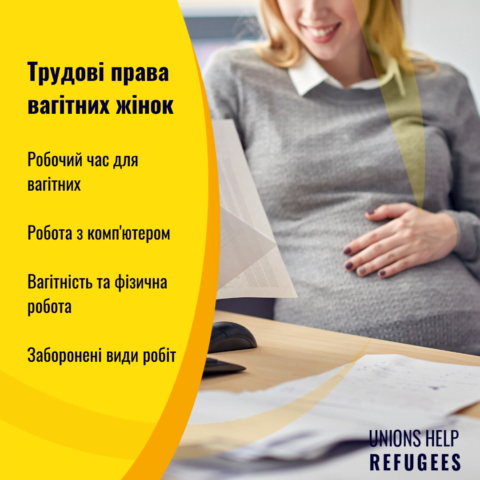When we meet you in the field, you often ask us about the employment rights of pregnant women. Seeing that there is a great need to clarify the whys and hows, we have compiled a short set of key information for pregnant women 🤰
Pregnant women’s work is under special legal protection. Even if you feel well and decide to continue working, you need to make sure that you have the right conditions to do so. Labour law provides special protection for women who are expecting a child. Among other things, it regulates how pregnant women can carry out their existing duties while working on a computer or while standing or sitting at work.
So what are the rights of a pregnant woman with regard to the performance of her professional duties? Among other things, a limitation on working hours, special protection of the employment relationship and a prohibition to perform tasks that are dangerous, arduous or harmful to the employee’s health.
WORKING TIME FOR PREGNANT WOMEN 🍼
⚪ Working time for women expecting a child is a maximum of 8 hours per day.
⚪ A pregnant woman at work retains the right to remuneration for the period not worked due to the reduction of her working hours for this reason.
⚪ A pregnant woman may not be seconded to work elsewhere without her consent, nor employed on an intermittent working time system.
⚪ A pregnant woman may not perform overtime or night duties. If a woman is employed at night, the employer must change her working hours for the duration of her pregnancy.
COMPUTER WORK 💻
⚪ The use of screen monitors at work for pregnant women must not exceed 8 hours.
In practice, this means that the number of hours a pregnant woman works in front of a monitor should be limited to a maximum of 8 hours per day. According to the regulation, the working time in front of the monitor must not exceed 50 minutes at a time, which must be followed by a break of at least 10 minutes counted as working time.
PREGNANCY AND PHYSICAL WORK 🏋️♀️
⚪ According to current legislation, pregnant women at work should not lift anything heavier than a maximum of 5 kg. This excludes many physical jobs, including standing work during pregnancy, so women doing such work must be approved by their doctor to continue their work duties.
In most cases, however, doctors suggest going on sick leave in similar situations. The risk of an accident, and the associated injuries, is sometimes simply too great to ensure the safety of the mother and her baby at work.
❗❗ Pregnant women’s work must not cause even the slightest risk to the health of the pregnant worker and her baby.
